Let’s say you’re a supplier at a busy trade fair. Buyers stop by, scan your products, and ask the one question you can’t answer with a simple price tag: “What’s your best price for 1,000 units?”
There isn’t a fixed answer. It depends on quantity, shipping, and even timing. So you lean in, negotiate, and build trust right there on the spot. That’s exactly what Request for Quotation (RFQ) brings into the digital world of B2B marketplaces.
RFQ turns rigid price tags into flexible conversations, helping vendors secure bigger deals while giving buyers the confidence that they’re getting fair value.
Instead of locking transactions into fixed pricing alone, RFQs open the door to negotiation, transparency, and stronger long-term relationships. In this guide, we’ll break down how Request for Quotation works, why RFQ in B2B marketplaces matters, and how you can start using it to your advantage.
What Is RFQ (Request for Quote) in B2B Commerce?
If you’ve ever shopped on Amazon, you know the drill: you see a product, check the price, and click “buy now.” That’s B2C (business-to-consumer) in action. Prices are fixed, no questions asked.

But in the B2B (business-to-business) world, things work differently. Businesses don’t just buy a single item. They often order in bulk, request customizations, or need recurring supplies. That’s where the Request for Quote (RFQ) comes in.
An RFQ is a formal request where a buyer asks one or more vendors to provide a price quote for a product or service based on specific requirements.
Think of it like this: instead of grabbing a single burger off the menu, you’re asking the restaurant, “What’s your price if I need 500 burgers with custom packaging, delivered every Friday for three months?” The restaurant won’t just give you the menu price; they’ll create a custom quote that factors in volume, logistics, and long-term value.
RFQ vs RFP vs RFI: Clearing the Confusion
Many people mix up these terms, so let’s make it simple:
- RFQ (Request for Quote): “Tell me your price for this specific product or service.”
- RFP (Request for Proposal): “Pitch me your full solution, not just the price.”
- RFI (Request for Information): “Give me the details about your product/service so I can decide if it fits.”
In short, RFQ is all about pricing and terms, and that makes it the backbone of most B2B marketplace transactions.

Why RFQ Systems Are Essential for B2B Marketplaces
B2C marketplaces thrive on speed. Buyers see the price, hit checkout, and it’s done. But B2B marketplaces live in a different world, a world where pricing is never one-size-fits-all. Here’s why an RFQ system is not just useful, but absolutely crucial for B2B commerce:
1. Complex Pricing & Bulk Orders
In B2B, order size changes everything. A company buying 100 pens won’t pay the same per unit as another company ordering 10,000. RFQ makes it easy for vendors to offer tiered or volume-based discounts that encourage larger purchases.
2. Customized Product Requirements

Unlike B2C, where products are standardized, B2B often involves custom specs, variations, or bundled services. For example, a hospital might request surgical gloves in specific sizes and packaging. With RFQ, vendors can adjust quotes to match those exact requirements.
3. Vendor Competition = Better Buyer Deals
When multiple vendors respond to the same RFQ, buyers can compare offers side by side. This creates a healthy competitive environment, pushing sellers to give their best pricing and terms, which directly benefits the buyer.
Relevant Read: How to Manage Vendors Using Dokan Multivendor
4. Buyer Demand for Negotiation & Transparency
B2B buyers expect some level of negotiation. A transparent RFQ system enables all communication and terms to be documented within the marketplace, eliminating hidden deals, confusion, and endless back-and-forth emails.
5. Boosts Marketplace Growth and Loyalty
An RFQ system encourages buyers to return because they know they can negotiate prices and get custom deals. Vendors also benefit from higher-value orders and repeat business, making the marketplace more active, competitive, and profitable over time.
In short, an RFQ system is what makes a B2B marketplace flexible, trustworthy, and scalable. Without it, you’re basically forcing bulk buyers to shop like everyday consumers, and that’s a deal-breaker in the B2B world.

RFQ in B2B Marketplaces: Key Benefits for Buyers and Sellers
RFQs aren’t just a formality; they’re a powerful growth lever for both sides of a B2B marketplace. Here’s why:
Benefits for Buyers
- Get Better Deals Through Bulk Discounts: Buyers can request custom quotes for larger orders, which often comes with volume-based pricing. The bigger the order, the more they save – a win-win for cost-conscious businesses.
- Compare Multiple Offers Easily: Instead of negotiating with vendors one by one, buyers can receive multiple quotes in one place. This saves time and ensures they pick the best value for their needs.
- Confidence Through Transparency: With RFQs handled inside the marketplace, all terms, pricing, and communications are documented and visible. Buyers know exactly what they’re getting and avoid surprises.
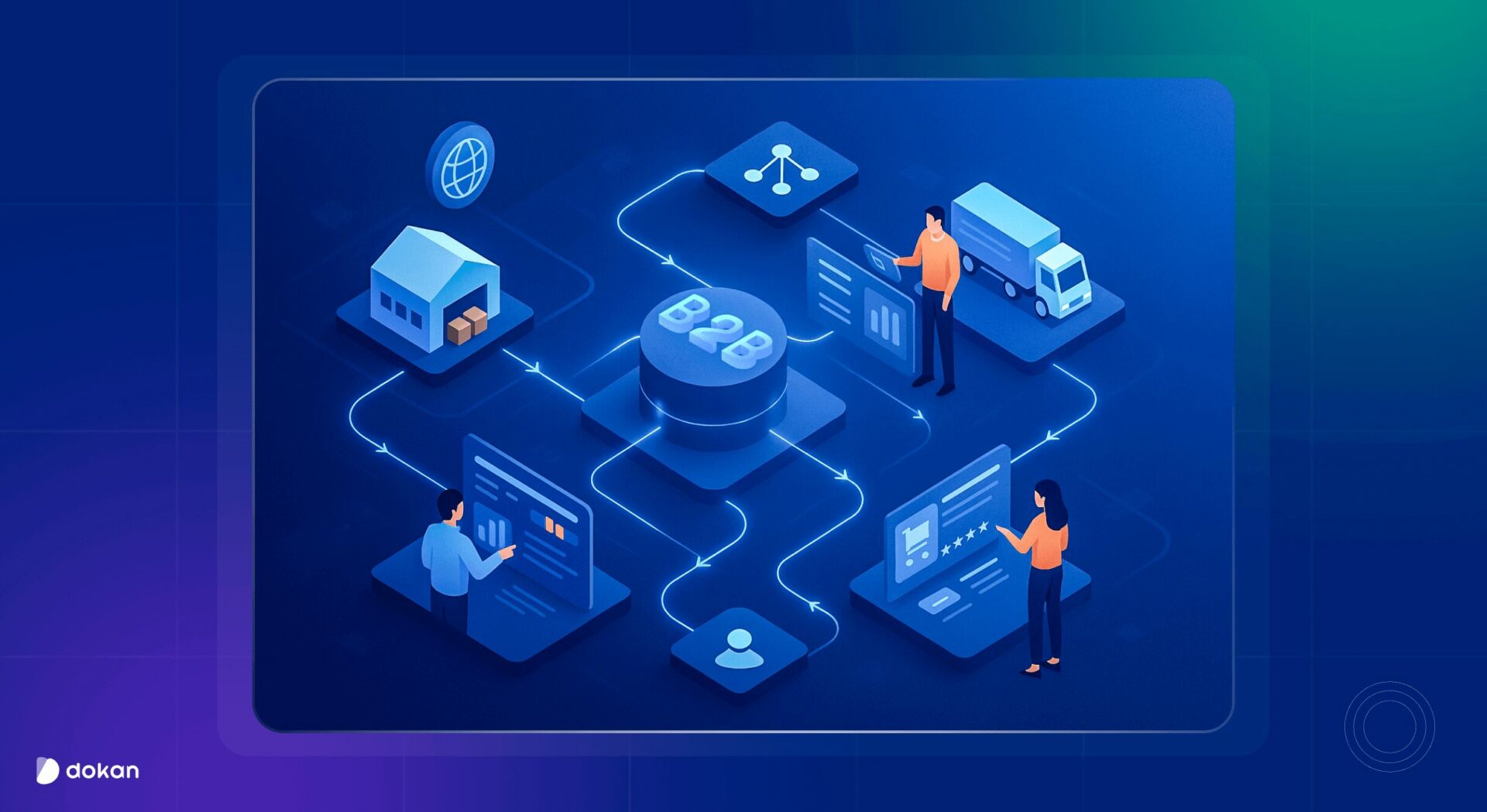
Benefits for Sellers
- Upsell and Cross-Sell Opportunities: RFQs let sellers propose additional products or services that complement the buyer’s order. It’s a subtle way to increase order value without being pushy.
- Flexibility in Pricing: Vendors can tailor quotes to account for bulk, customization, or long-term contracts, giving them room to stay competitive while protecting margins.
- Build Stronger Customer Relationships: Responding promptly with personalized quotes shows buyers that the vendor understands their needs, building trust and encouraging repeat orders.
- Data-Driven Insights for Strategy: Every RFQ provides valuable insights: which products are most requested, what discounts work, and which buyers are more likely to convert. Sellers can use this to refine pricing and inventory strategies.
The RFQ Process in B2B Marketplaces (Step by Step)
An RFQ is a structured process that connects buyers and sellers efficiently. Here’s how it typically works:
Step 1: Buyer Submits an RFQ
The buyer fills out a form specifying:
This creates a clear, actionable request for vendors.
Step 2: Vendors Respond with Custom Quotes
Vendors review the RFQ and send a personalized quote:
Vendors can also propose alternatives if they can’t meet the exact requirements.
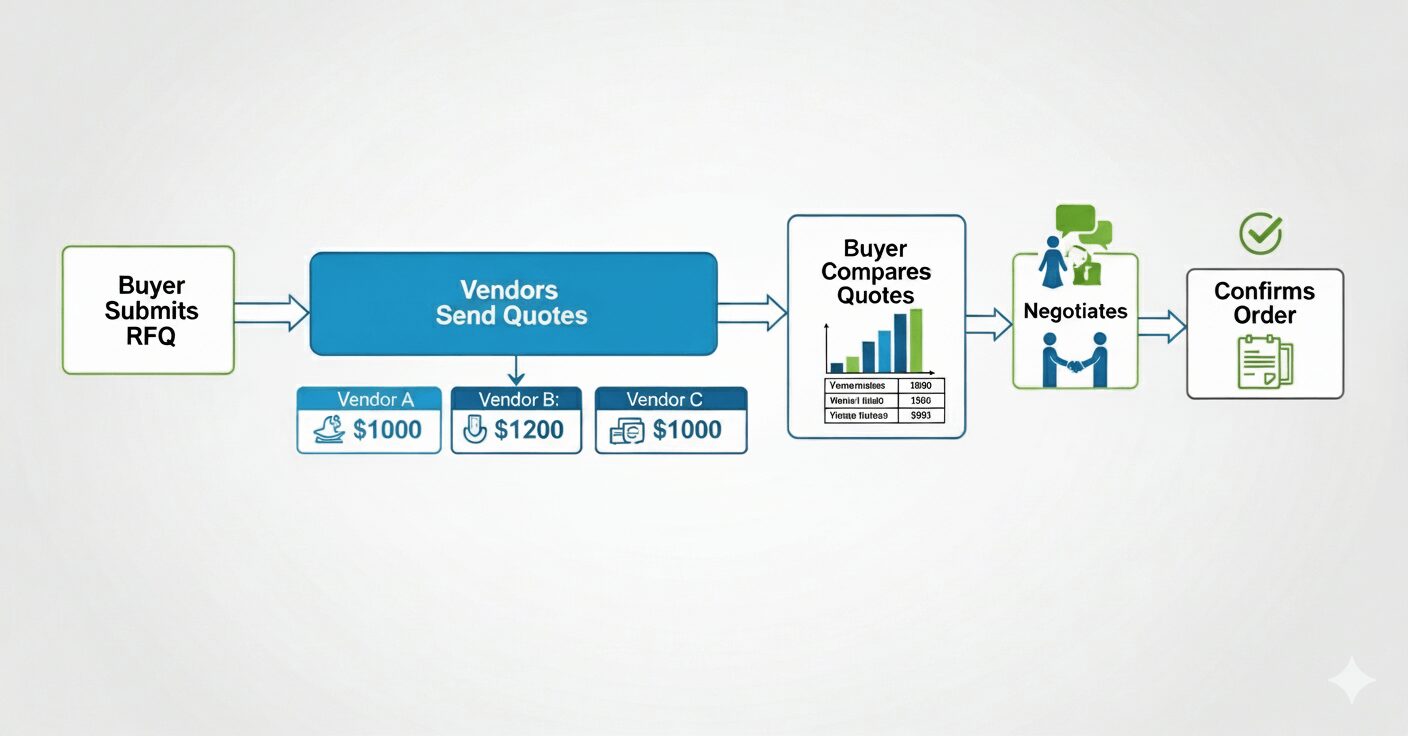
Step 3: Buyer Compares Quotes
Buyers receive multiple quotes in one place, making it easy to compare prices, delivery times, and terms. This competitive environment often drives better deals.
Step 4: Negotiation & Clarification
Buyers and sellers can ask questions or negotiate terms directly within the marketplace platform. Everything is tracked and transparent, reducing miscommunication.
Step 5: Finalize the Deal and Place the Order
Once the buyer selects the best quote, the order is confirmed and processed. Vendors fulfill the order according to the agreed terms, ensuring smooth transactions.

RFQ vs Fixed Pricing: Which Works Best in B2B?
Not every B2B transaction needs a custom quote. Understanding when to use RFQ and when fixed pricing works is key for vendors and marketplace operators. The following comparison table can help you in this regard.
| Feature / Scenario | Fixed Pricing | RFQ (Request for Quoatation) |
|---|---|---|
| Best For | Standardized products, low volume orders, quick transactions | Bulk orders, customized products/services, negotiation-friendly deals |
| Pricing Flexibility | Low – same price for all buyers | Moderate – everyone sees the same price |
| Speed of Purchase | Fast – instant checkout | Slower – requires vendor response and negotiation |
| Buyer Transparency | Moderate – everyone sees the same price | High – quotes are specific to buyer requirements, clear terms |
| Encourages Large Orders | No – price is fixed regardless of quantity | Yes – volume discounts and tailored quotes motivate bigger purchases |
| Vendor Effort | Low – set once, minimal adjustments | High – requires responding to RFQs and possibly negotiating terms |
| Relationship Building | Low – transactional | High – promotes trust, repeat business, and long-term partnerships |
| Ideal Use Case | Office supplies, pre-packaged items | Custom machinery, bulk materials, specialized services |
The Hybrid Approach: Best of Both Worlds
Many successful B2B marketplaces use both fixed pricing and RFQ together. Standard products remain fixed-price for speed. High-value or customizable products use RFQ for tailored quotes. This hybrid approach ensures flexibility for buyers and efficiency for vendors.
Modernize Your Marketplace with Dokan’s Request for Quotation Module
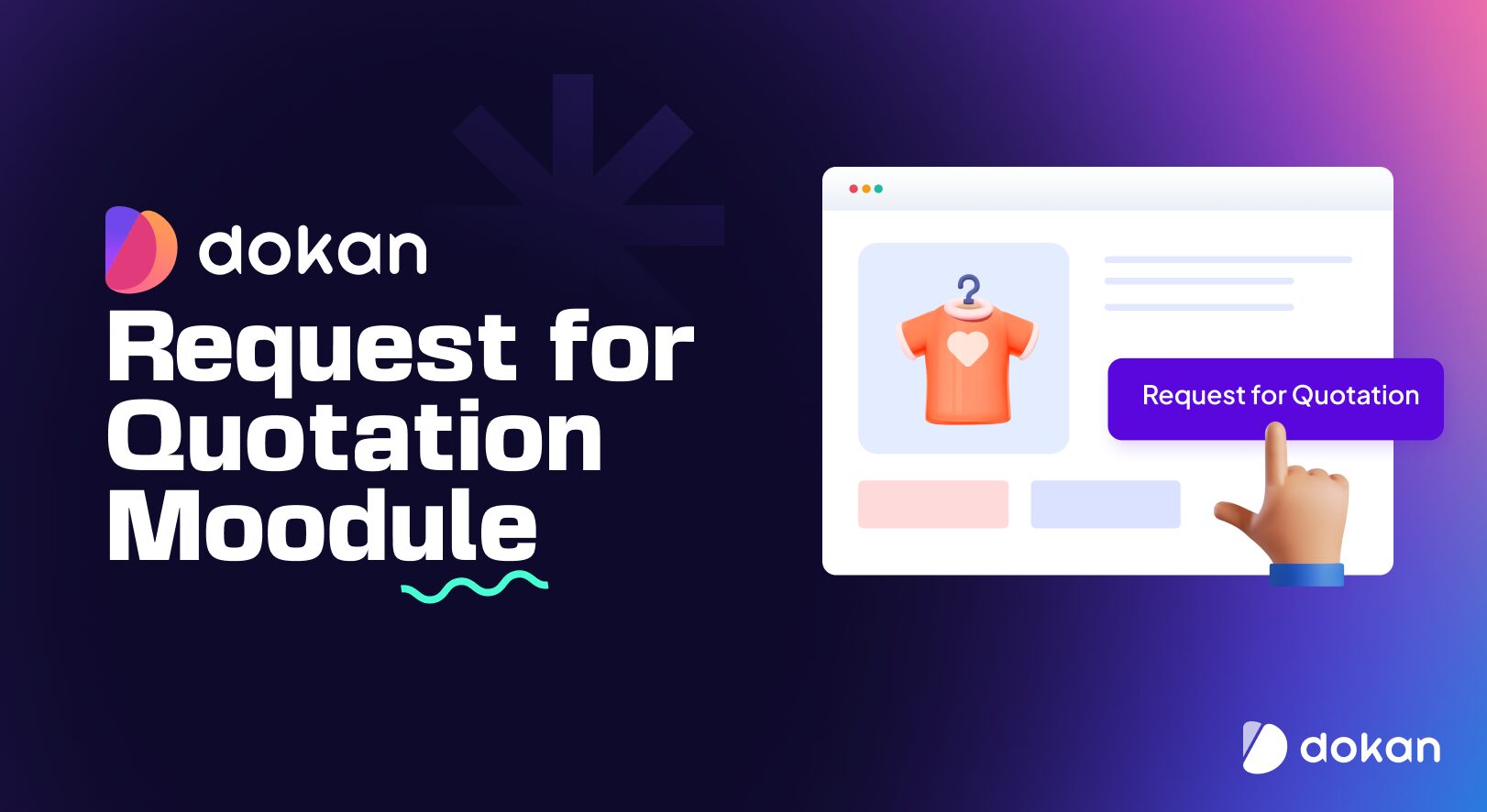
Dokan’s RFQ module empowers multi-vendor marketplaces to handle bulk orders, custom products, and wholesale deals effortlessly. Vendors can manage quotes directly, while buyers enjoy a transparent, negotiation-friendly process. Let’s have a quick look at the features:
The module simplifies every step of the quotation process, saving vendors time, building trust with buyers, and driving more sales across your marketplace.
The Future of RFQ in B2B eCommerce
RFQ has been around for decades, but the way it’s implemented in B2B marketplaces is evolving fast. The future is all about automation, personalization, and smarter decision-making.
According to LinkedIn’s 2025 B2B Buyer Report cited in the article, millennials and Gen Z make up 73% of B2B buyers, driving demand for intuitive, digital-first purchasing experiences.
RFQ systems are evolving rapidly to meet the needs of these digital-savvy buyers and the growing scale of online marketplaces. The focus is now on automation, flexibility, and transparency.
1. AI and Automation Will Streamline Quotes

AI-powered tools are transforming RFQ workflows by automating quote generation, predicting optimal quantities, and pre-populating RFQs with specifications. Vendors can respond faster, reduce manual errors, and free up time for high-value tasks, improving efficiency and speeding up the buyer journey.
2. Self-Service Portals and Hybrid Models
Buyers increasingly expect control over their purchasing experience. Self-service RFQ portals allow them to create requests, configure quantities, and submit approvals without always needing a sales rep. Hybrid approaches, blending “buy now” options with RFQs, support both complex orders and quick reorders, making marketplaces more flexible and user-friendly.
3. Mobile and Omnichannel RFQ
With mobile devices driving much of B2B research activity, RFQs are shifting to mobile-first designs. Buyers can submit requests, receive updates, and negotiate quotes on the go, while omnichannel integration ensures that websites, marketplaces, and social platforms provide a unified sourcing experience.
4. Blockchain for Transparency and Sustainability
Blockchain is enhancing trust in RFQ processes by creating immutable records for quotes and supply chains. This reduces errors, improves accountability, and supports buyers’ growing interest in sustainable and responsible sourcing.
5. Marketplaces and Subscription Models
RFQs are becoming a core feature of multi-vendor marketplaces, helping vendors compete while buyers compare offers efficiently. Subscription models for recurring bulk orders are also emerging, providing vendors with predictable revenue and buyers with a reliable, streamlined purchasing process.
💡 Key Takeaway: The future of RFQ is digital, automated, and buyer-centric. Vendors that adopt AI-driven, mobile-optimized, and transparent RFQ systems will boost efficiency, enhance buyer trust, and drive growth in the competitive B2B eCommerce landscape.
FAQs on Request for Quotation (RFQ) in B2B Marketplaces
Navigating RFQs can sometimes feel complex, especially in a multi-vendor B2B marketplace. To help you understand how RFQs work, why they matter, and how they benefit both buyers and vendors, we’ve compiled answers to the most frequently asked questions:
1. Can RFQs coexist with fixed pricing?
Yes. Marketplaces often use a hybrid approach where standard products have fixed prices, while bulk, customized, or high-value items are handled through RFQs. This gives buyers flexibility without slowing down standard transactions.
2. How does technology help RFQs?
Modern RFQ systems leverage AI, automation, mobile access, and self-service portals to make workflows faster, reduce errors, and handle multiple requests efficiently. This allows vendors to respond promptly while providing buyers a smooth, digital-first experience.
3. Are RFQs only for large orders?
Not necessarily. While RFQs are ideal for bulk or custom orders, they can also be used for any transaction requiring tailored terms, special discounts, or unique specifications, ensuring flexibility for both buyers and vendors.

4. Who benefits from RFQs?
Both buyers and vendors gain from RFQs. Buyers can request personalized quotes, compare offers, and negotiate terms, while vendors can efficiently manage complex orders, improve accuracy, and build stronger relationships with customers.
5. What’s the overall impact of RFQs?
RFQs streamline processes, enhance transparency, and improve conversion rates. By providing flexibility and personalized pricing, they boost buyer satisfaction and help marketplaces grow, making RFQs an essential tool in modern B2B eCommerce.
Accelerate Your Marketplace Growth with RFQ Feature
The biggest deals in business were never sealed by just glancing at price tags; they were forged through conversations, negotiations, and trust. Today, RFQ brings that same energy into B2B marketplaces.
As automation, AI, and smarter tools reshape eCommerce, RFQs aren’t just keeping up, they’re fast becoming the backbone of modern B2B sales. They make pricing flexible, boost buyer confidence, and give vendors the leverage to close bigger deals.
With B2B eCommerce projected to hit $3.027 trillion by 2028, marketplaces that integrate RFQ systems will be in the best position to capture this growth and stay ahead of the competition.
The good news? With Dokan’s RFQ module, implementing this is simple. Vendors can generate tailored quotes in minutes, buyers can compare and negotiate effortlessly, and your marketplace can scale without the roadblocks of rigid pricing.
Subscribe to
Dokan blog
We send weekly newsletters, no spam for sure!

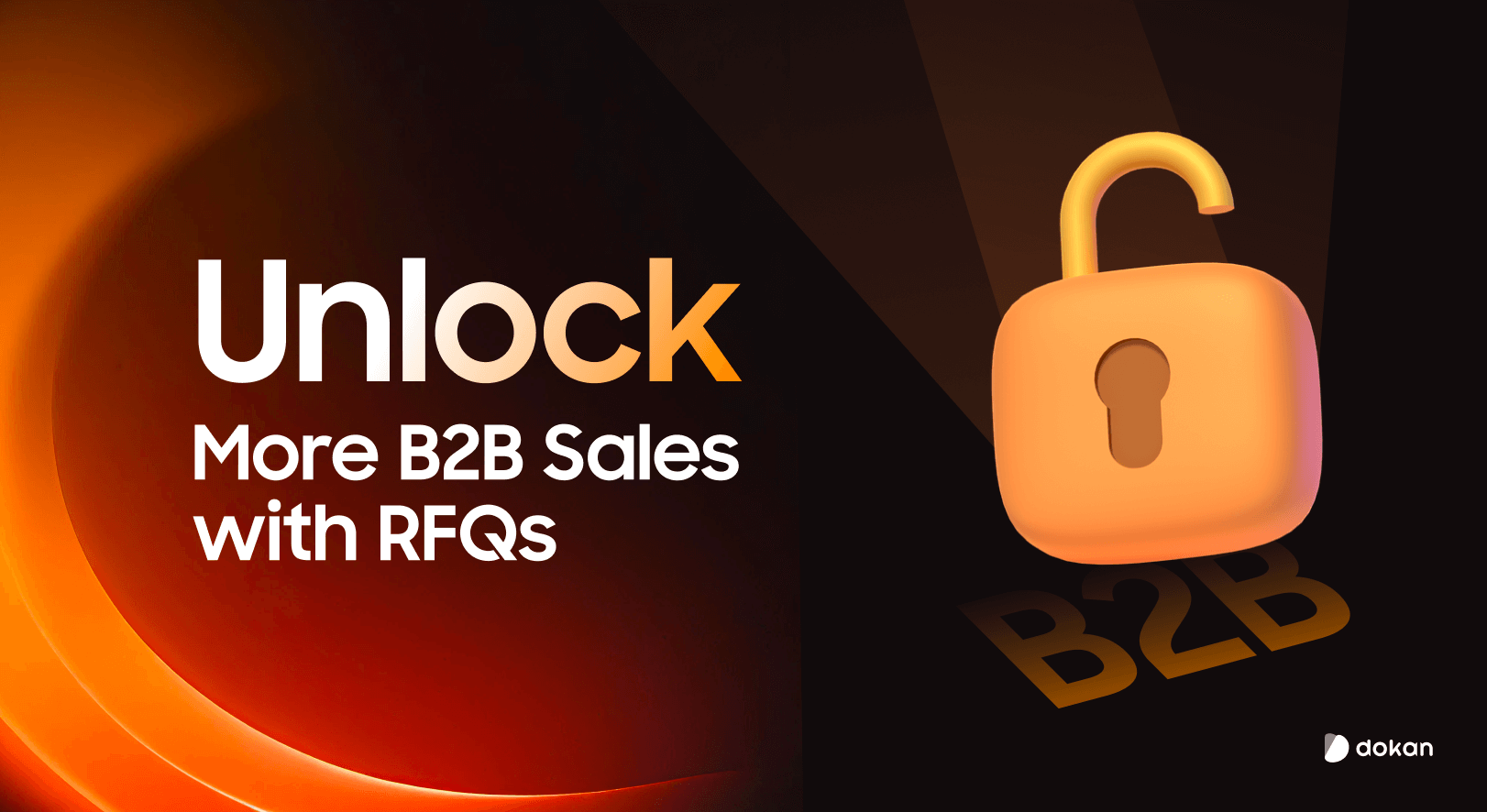
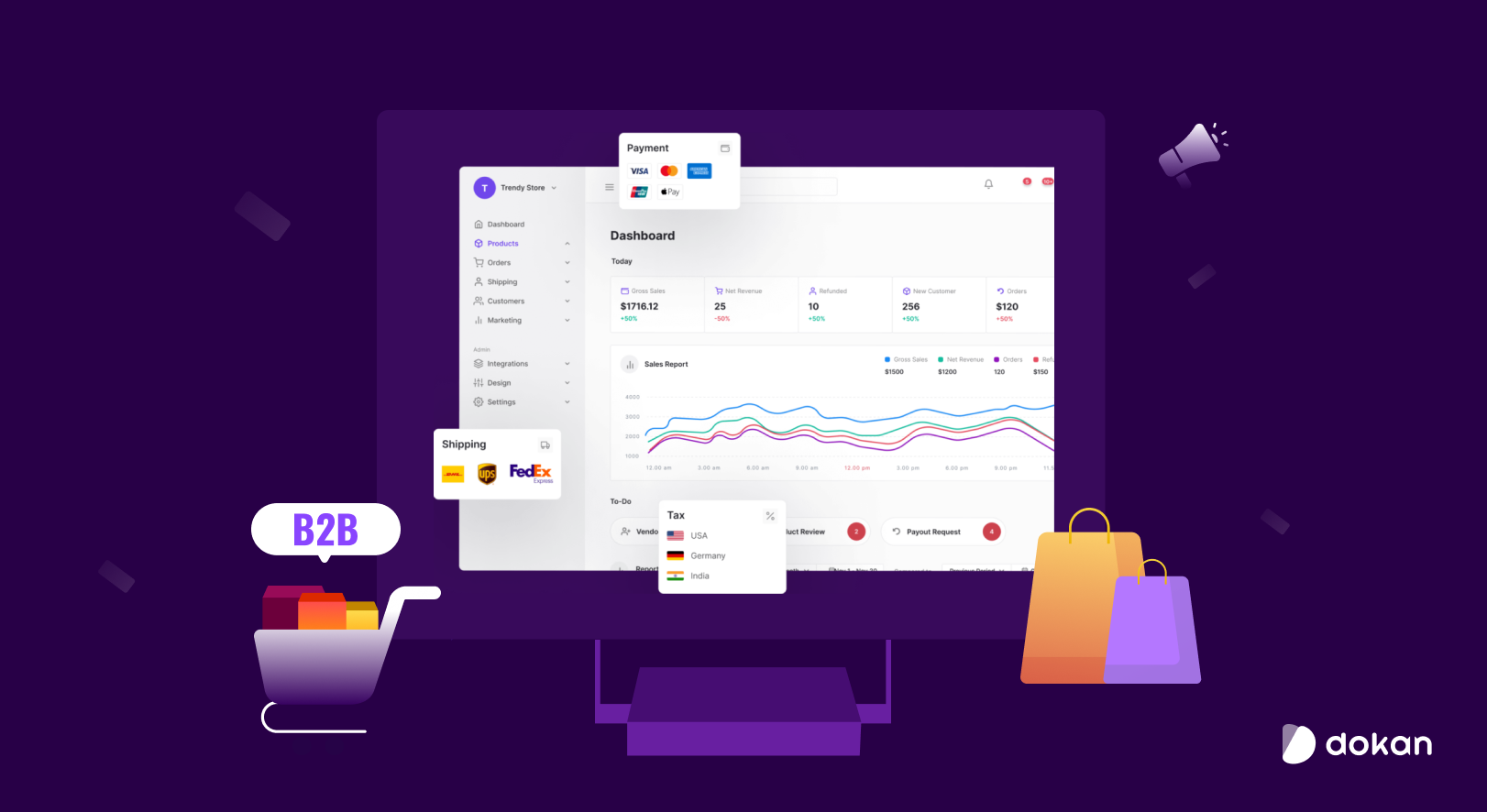
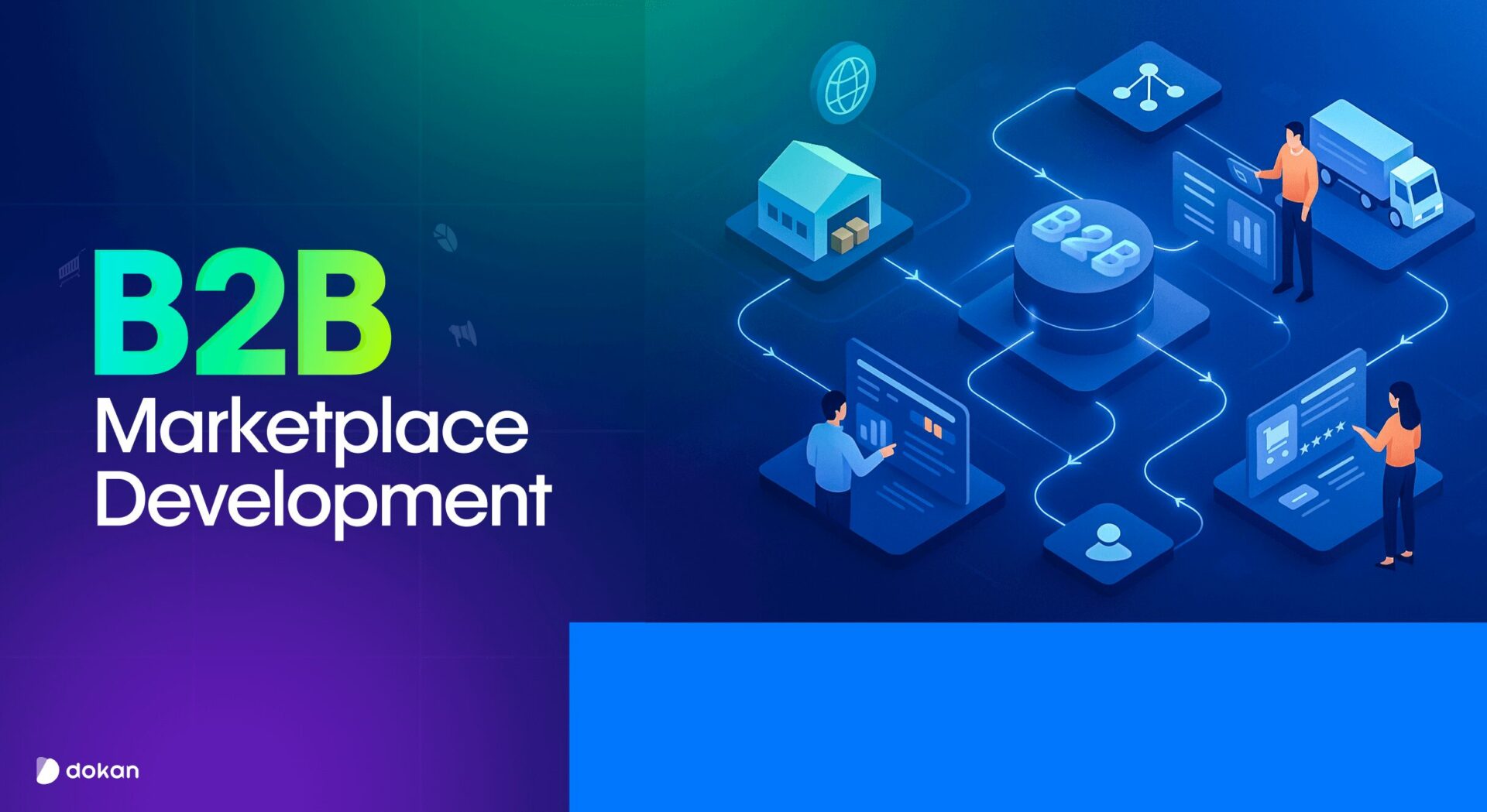
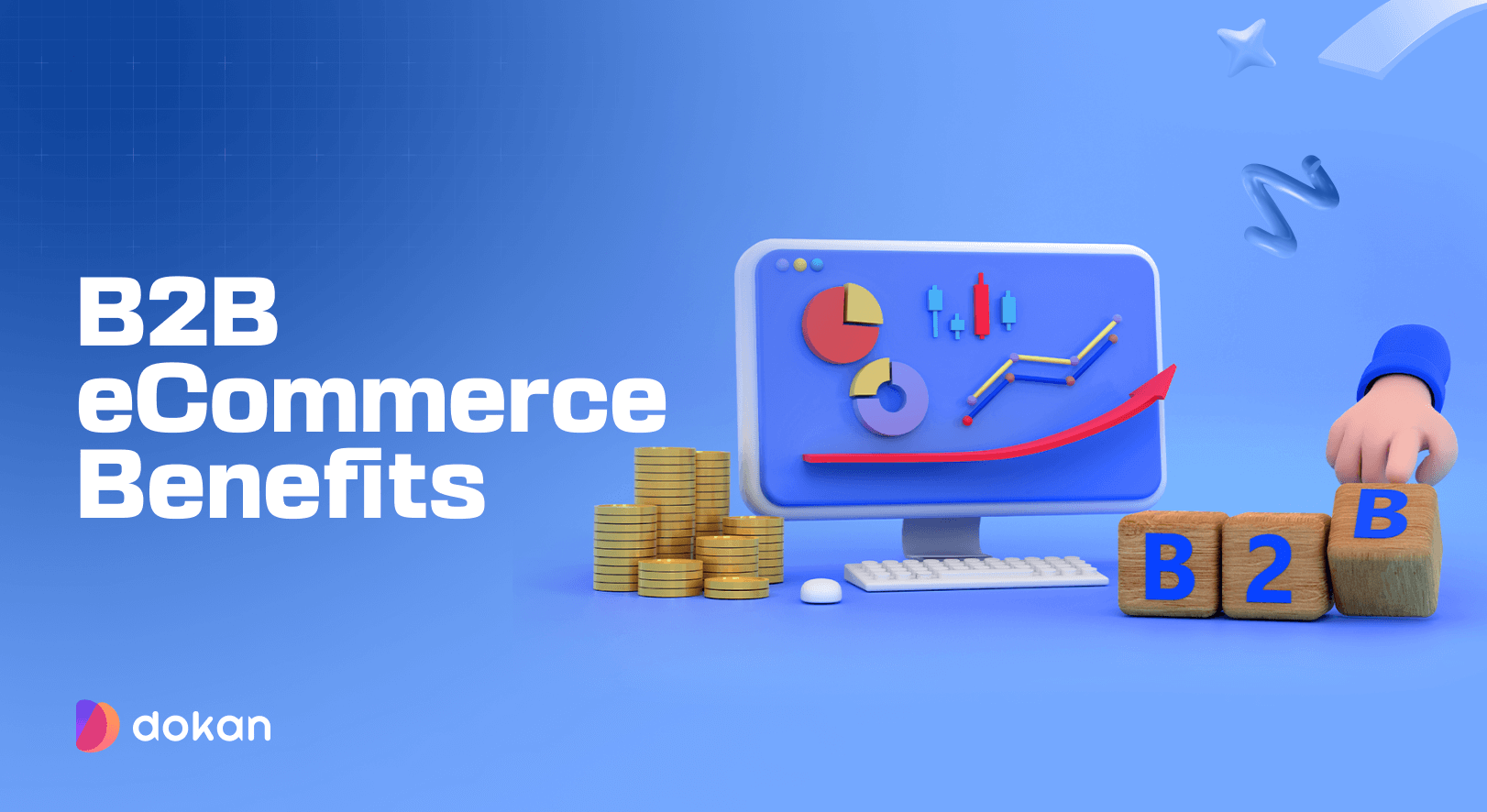
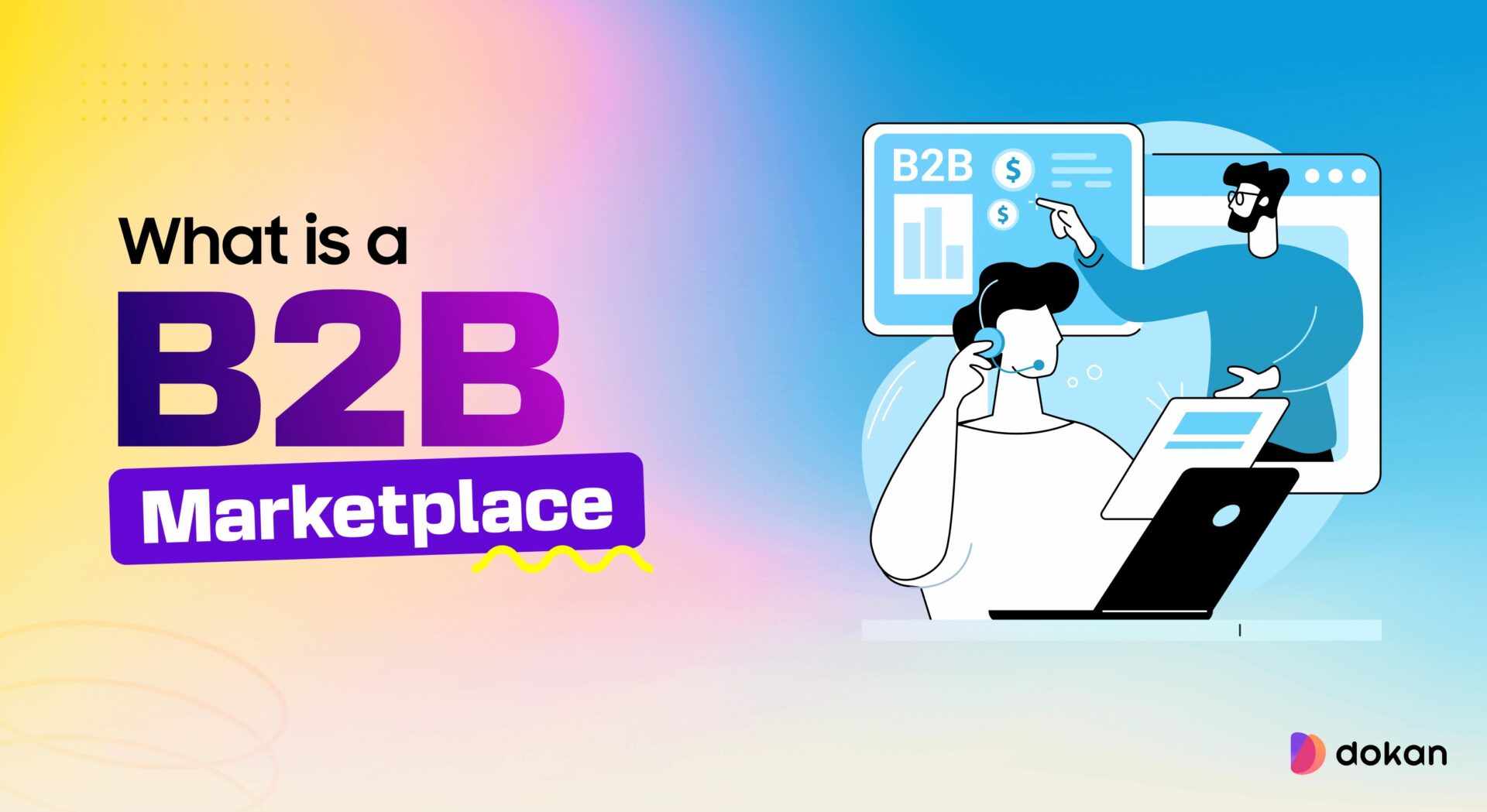

Leave a Reply